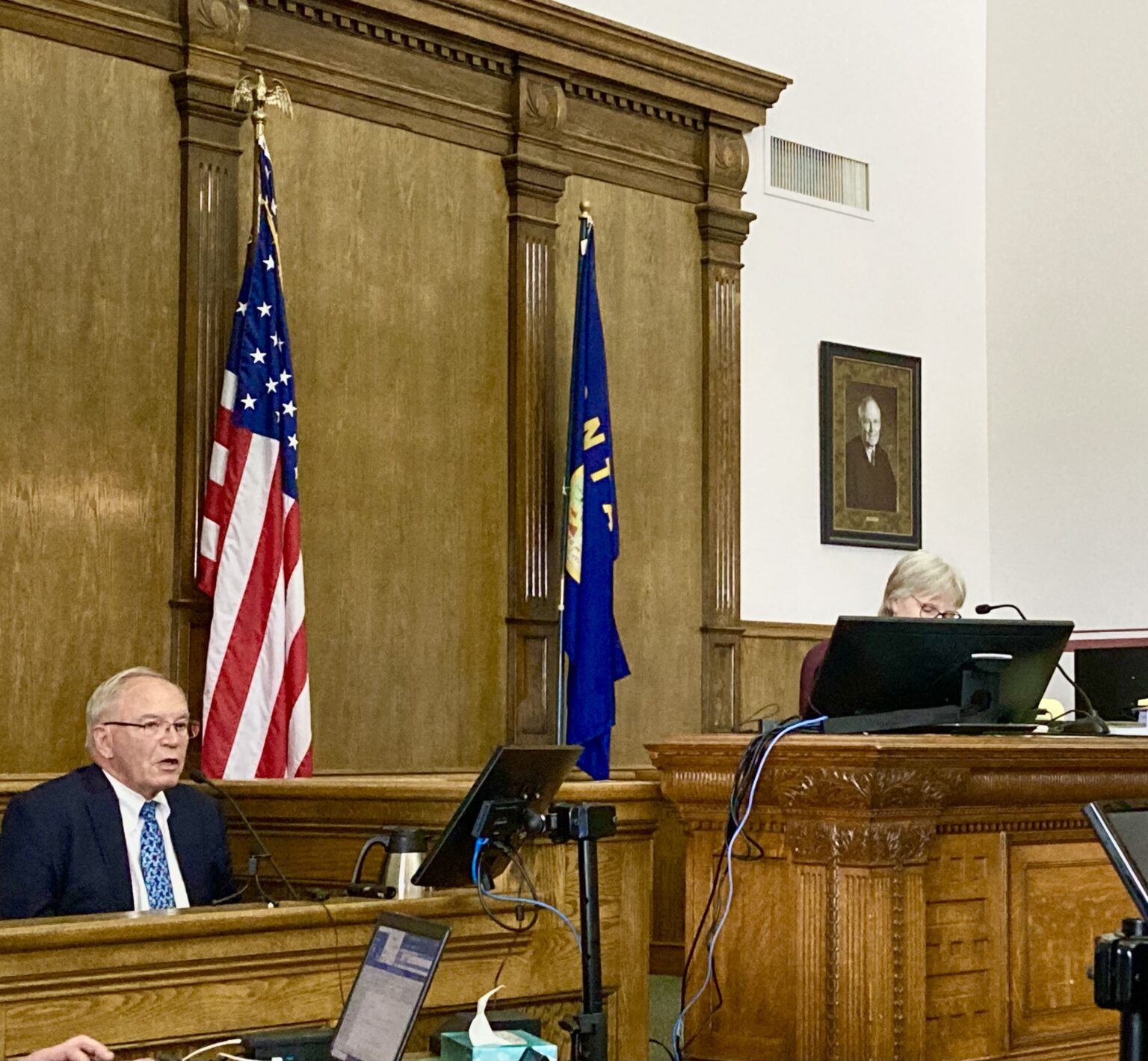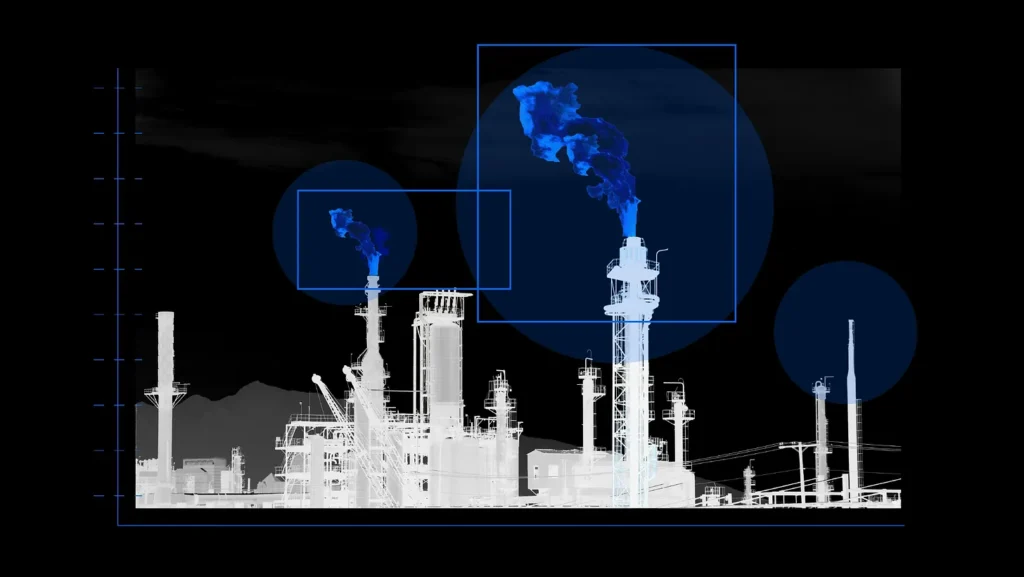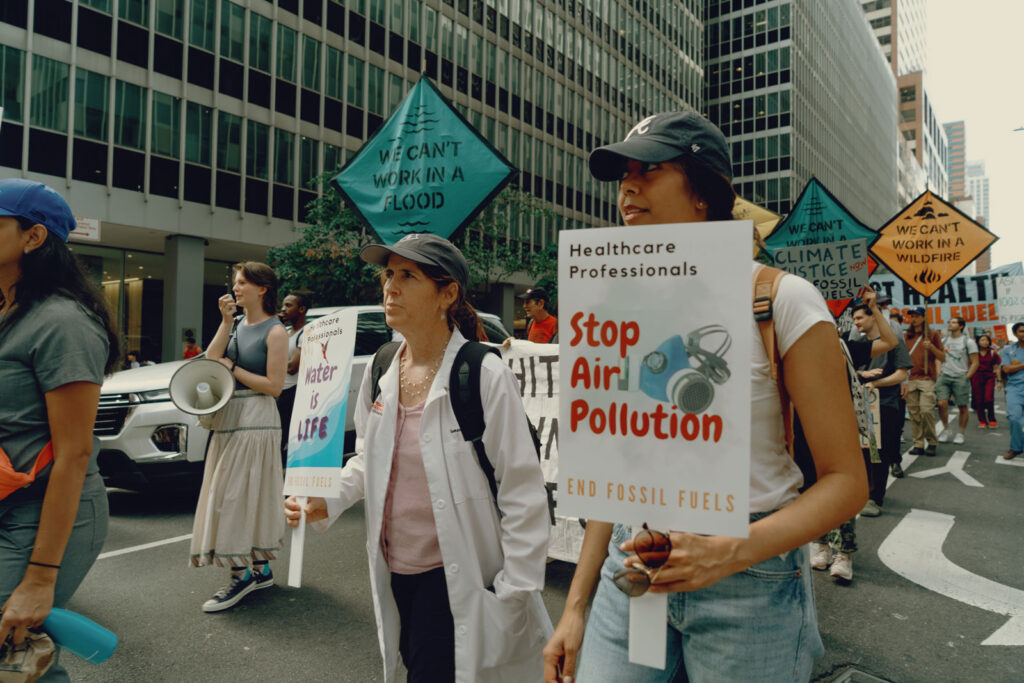The historic youth climate trial in Montana concluded today ahead of schedule, after the state presented a condensed defense on Monday that steered clear of disputing climate science. It also excluded testimony from witnesses it had previously planned to call upon, including a neuropsychologist who admitted she had no expertise on climate change’s mental health impacts on youth and climatologist-turned-climate-denier Judith Curry, who had been billed as the state’s star witness.
Curry’s withdrawal came unexpectedly on Friday. Phil Gregory, an attorney for the youth plaintiffs, informed Judge Kathy Seeley that Curry’s anticipated court appearance had been canceled. The precise reason for the cancellation is unclear, and the Montana attorney general’s office did not respond to DeSmog’s inquiry.
“We know [Curry] watched the whole trial last week,” Julia Olson, chief legal counsel and executive director of Our Children’s Trust, a nonprofit law firm representing the Montana youth plaintiffs, told reporters outside the courthouse on Monday. “It was pretty clear that her testimony wouldn’t stand up against our expert testimony.”
Last week, some of Montana’s foremost climate scientists and ecologists testified in the historic trial, in support of the plaintiffs’ claims. The landmark Held v. State of Montana case argues that Montana’s government is violating the state’s constitutional right to a clean and healthful environment by prohibiting consideration of climate change and greenhouse gas emissions during environmental reviews conducted during the permitting process for fossil fuel projects. Anne Hedges, a Montana environmental policy expert and the director of policy and legislative affairs for the Montana Environmental Information Center, told the court last week that Montana has never denied a permit for a fossil fuel project.
In its defense on Monday, the state tried to support this conduct by divorcing its laws governing permitting authority from the Montana Environmental Policy Act (MEPA). This act requires regulatory agencies like the Montana Department of Environmental Quality (DEQ) to conduct environmental reviews and evaluate the impact of major development projects — but prohibits evaluation of climate impacts.
During Monday’s defense testimonies, officials from defendant agency Montana DEQ said repeatedly that MEPA is strictly procedural. It requires an evaluation and disclosure of environmental impacts, but “cannot be used to condition or deny a permit,” Sonja Nowakowsi, administrator for Air, Energy, and Mining Division at DEQ, told the court.
“‘Procedural’ is a term that industry likes to use,” Hedges told the court on Thursday.
DEQ officials also claimed that MEPA is separate from other statutes that grant permitting authority, such as the Montana Strip and Underground Mine Reclamation Act for coal mines. This mining statute “is silent in terms of greenhouse gas emissions and climate change” and prior to the 2023 MEPA amendment (HB 971) — which expressly prohibits MEPA reviews from considering greenhouse gas emissions and their climate impacts — the term climate change was completely absent from any law in the Montana code, Nowakowski said.
DEQ head Chris Dorrington also testified that MEPA does not grant the agency any regulatory authority. “MEPA doesn’t permit,” he said. But he confirmed that MEPA review is part of the process for issuing permits for projects like coal mine expansion, and said the agency does not look at impacts for coal combustion when permitting coal mining activities.
Nowakowsi agreed that fossil fuel activities are the largest contributor to greenhouse gas emissions in the state, yet state law under MEPA bars the agency from evaluating the environmental impacts of those emissions.
“Not a Scientist”
When asked during cross-examination whether greenhouse gas emissions harm the “environmental life support system” that Montana’s constitution expressly protects, Nowakowsi replied: “I’m not a scientist.” When asked as a follow up whether these emissions contribute to environmental degradation, she responded: “Again, I’m not a scientist.”
That line is a favorite of Republican politicians and government officials, used to deflect from their climate denialism; Supreme Court Justice Amy Coney Barrett trotted it out during her 2020 Senate confirmation hearing.
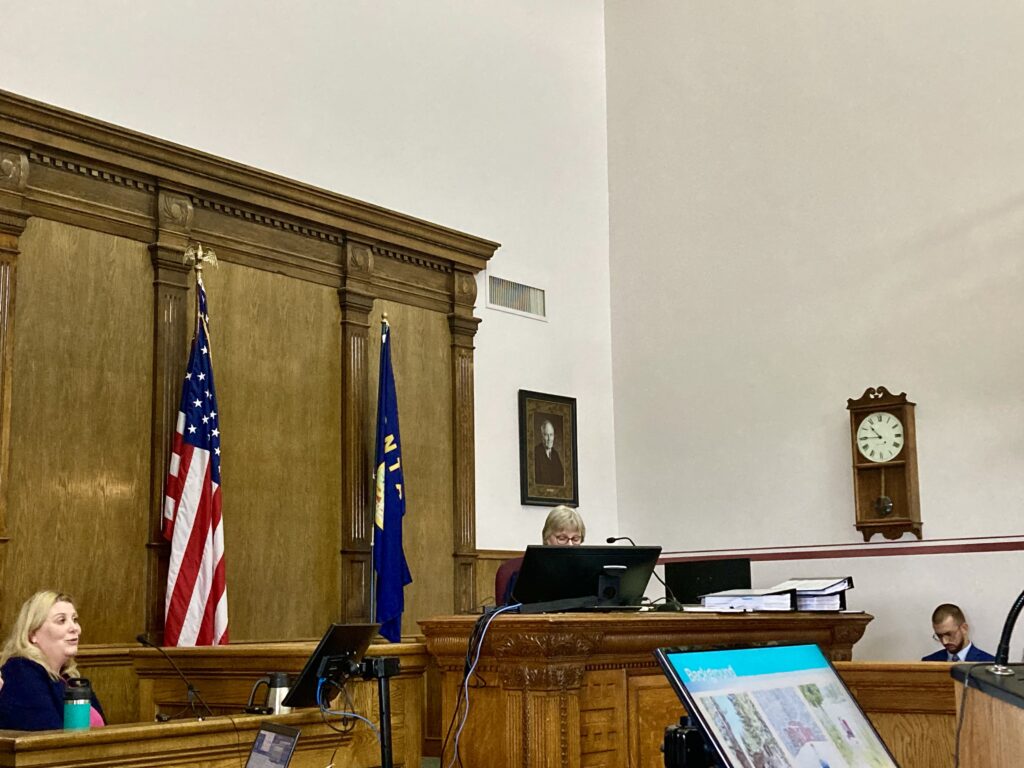
Lee McKenna, a state lawyer for DEQ, used the “not a scientist” talking point in defending Dorrington during his cross-examination. When attorney Melissa Hornbein of the Western Environmental Law Center, which is helping represent the youth plaintiffs, asked Dorrington whether the amount of greenhouse gasses emitted as a result of DEQ-authorized activities has an effect on Montana’s healthful environment, McKenna objected, noting “he’s not a scientist who can testify to health effects [of the environment].”
The director of one of the state’s main environmental agencies, whose mission is to “champion a healthy environment for a thriving Montana,” admitted that prior to this trial he was unfamiliar with the Intergovernmental Panel on Climate Change (IPCC) — the world’s most authoritative climate science body.
Climate scientist Steven Running, professor emeritus at the University of Montana and a chapter lead author of the IPCC’s Fourth Assessment Report, told the court last week that Montana is “going the wrong way in this issue with every ton of CO2 emitted.” When asked by plaintiff counsel Gregory if failure to consider climate change impacts would be reasonable from a scientific perspective, he responded: “No, not at all.”
An Economist “Who Isn’t Great with Numbers”
The state’s only outside witness to take the stand on Monday was economist and climate contrarian Terry Anderson, a senior fellow at the Hoover Institution and former president of the Property and Environment Research Center (PERC). The state hired him as a $500-an-hour expert witness.
During cross-examination he also stated, “I’m not a climate scientist” and Gregory revealed that Anderson submitted incorrect calculations and misrepresentations of the state’s emissions in his original expert report. Anderson had to correct his report, including an appendix table displaying 2019 and projected 2030 emissions by sector and fuel source. The table in his original report misrepresented the data as Montana-specific when it in fact pertained to the entire Mountain West region.
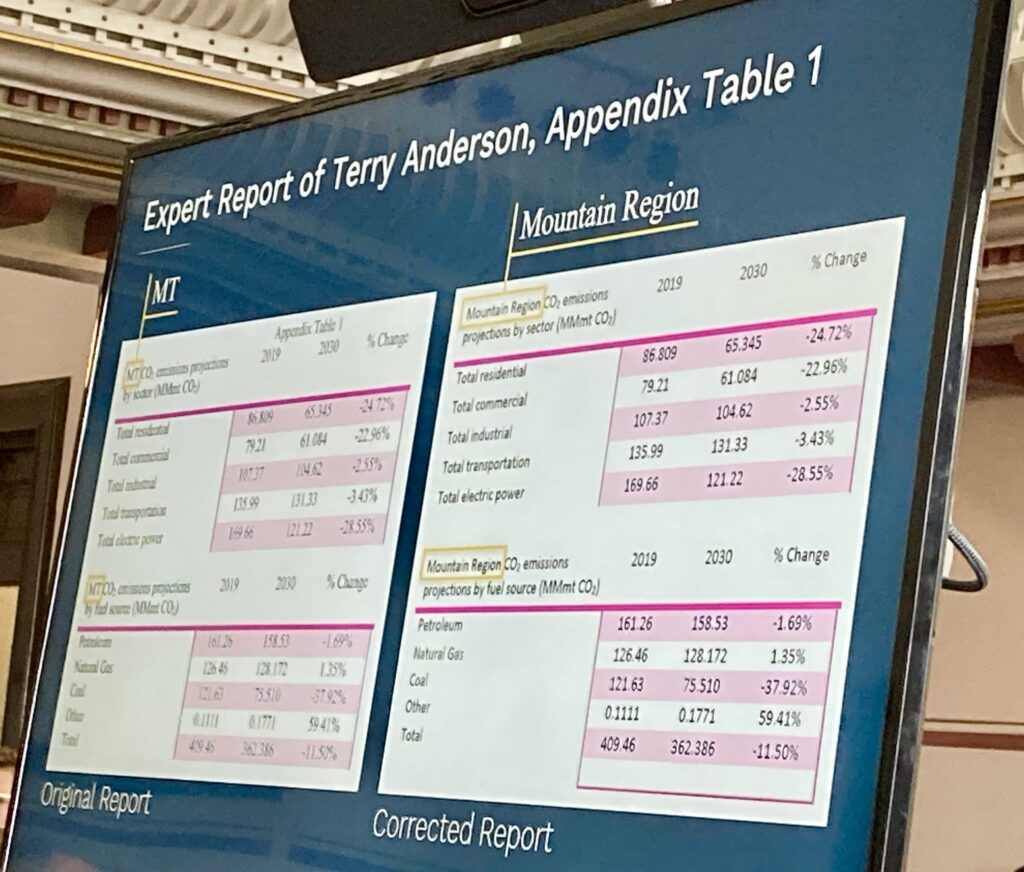
Defendants “put on their single expert witness that they are calling in this trial who is an economist, who isn’t great with numbers,” Julia Olson, head lawyer and executive director of Our Children’s Trust, told reporters on Monday. Montana-based neuropsychologist Dr. Debra Sheppard, another proposed expert witness for the state, did not take the stand. Olson said Sheppard “admitted in her deposition that she didn’t understand climate change and had no expertise on the mental health impacts of climate change on young people.”
Mat dos Santos, an attorney with Our Children’s Trust, said “it was pretty noteworthy that the state rested its entire case on two agency witnesses and just one of their proposed experts.”
“When you compare it with irrefutable evidence that plaintiffs put on through an entire week of testimony last week, I think the evidence speaks for itself,” he said, adding, “We’re expecting to win this one.”
Subscribe to our newsletter
Stay up to date with DeSmog news and alerts


